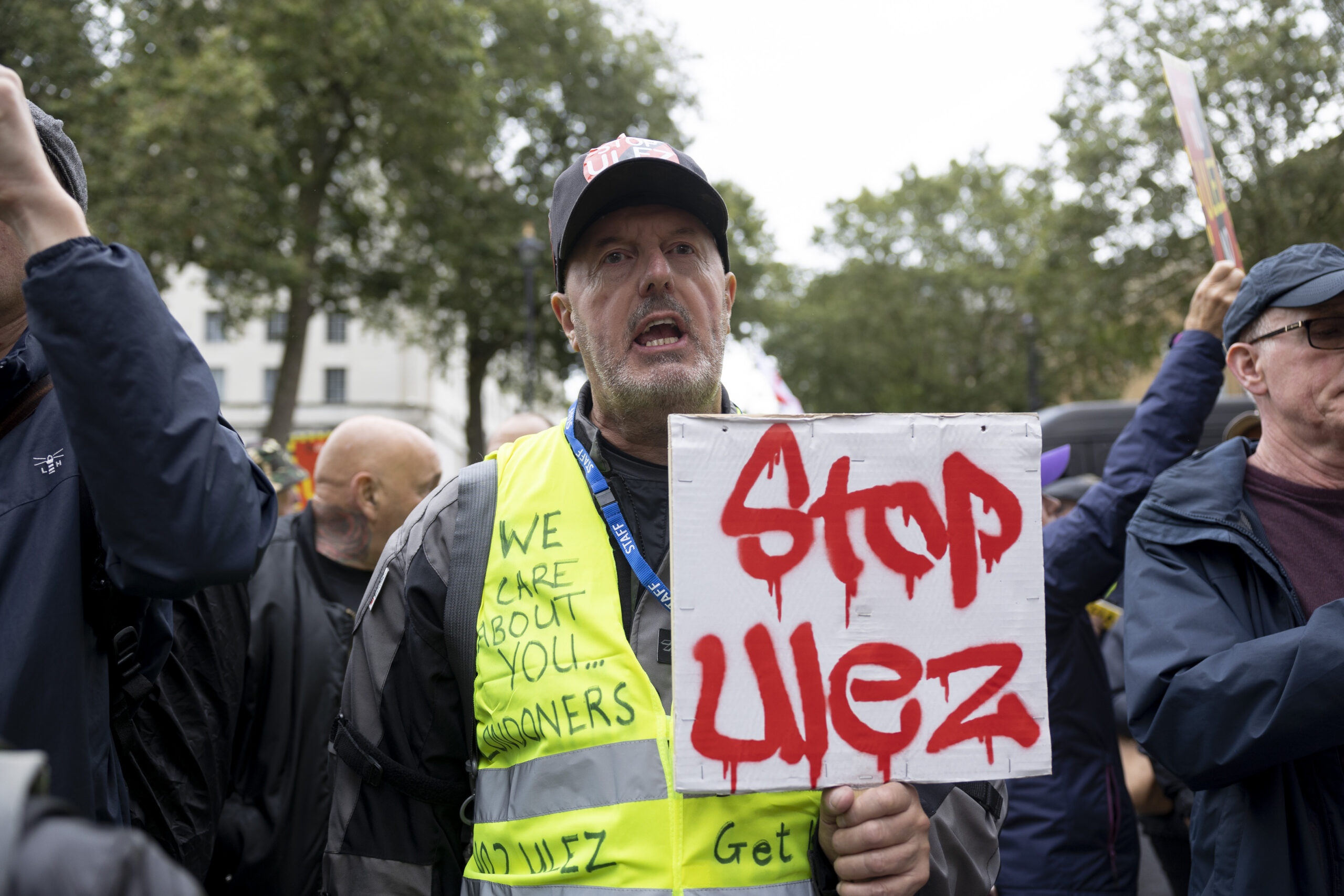Polls Show Most Londoners Back Ulez, So Politicians Can Untwist Their Knickers
A non-issue.
by Ell Folan
21 August 2023

On 20 July, the Labour party found that – despite what the polls might suggest – it is not invincible. In the Uxbridge and South Ruislip by-election, Keir Starmer’s party lost to the Tories by a few hundred votes, failing to gain a seat that polls and analysts had expected Labour to flip. In the aftermath, many culprits were identified, the main one being the ultra-low emissions zone (Ulez) scheme spearheaded by London Mayor Sadiq Khan. First introduced in 2019, Ulez imposes a daily charge on drivers whose vehicles do not meet emissions standards, and is set to expand into outer London areas like Uxbridge on 29 August 2023.
In response, Starmer called on Khan to “reflect” on Ulez and began backtracking on his environmental policies. He pledged to uphold the new oil and gas licenses issued by the Tories, delayed plans for green investment and has reportedly scrapped Labour’s commitment to clean air zones. Yet it is possible Labour may be overreacting. Polls show that British voters approve of the Ulez and care deeply about clean air, as well as combating climate change more broadly. Far from currying favour with the public, Labour’s dilution of its environmental policies could end up backfiring.
The impact of Ulez scheme on the Uxbridge by-election is unarguable. Labour managed only a seven-point swing, compared to the 24-point swing they achieved in Selby the same day. Given Uxbridge was far more marginal than Selby in 2019, the impact of local factors is obvious even from the headline result. Looking closer, polling by JL Partners found that Ulez was Conservative Uxbridge voters’ number one issue (whereas in Selby, it was immigration). Yet as is often the case in by-elections, Uxbridge is an outlier.
Polling tells us that Ulez is popular with Londoners as a whole: 57% of Londoners overall support the Ulez, including 51% of voters in Ulez-free outer London.
What’s more, Ulez and similar clean air schemes are popular nationwide. When surveyed by DeltaPoll in late July, a plurality of British voters (40%) said they supported Ulez, just 28% opposed it. Despite swathes of negative press, support has actually risen since the by-elections. This includes nearly a third of Tory voters (31%) and a third of over-65s, both demographics that Labour is keen to win over.
Brits also support the similarly “controversial” low traffic neighbourhoods (LTNs), a scheme where planters or bollards are used to prevent through traffic. Whilst not a new idea, LTNs began to be introduced in large numbers during the pandemic; there are now around 300 such schemes around Britain, particularly in cities like Manchester and London.
Contrary to the controversy around the scheme, manufactured in part by the far right, LTNs are very popular: 52% of Brits back their introduction, with just 36% opposed. The scheme is especially popular among Londoners, 55% of whom support it.
In fact, according to YouGov polling conducted earlier this month, UK voters are strongly in favour of a number of climate policies. 72% support the government’s stated aim of reducing Britain’s carbon emissions to net zero by 2050, while overwhelming majorities of voters back more wind farms (79%), a ban on single-use plastics (76%), higher taxes on high-carbon firms (80%) and a requirement for all energy to be from renewable sources (62%).
Such support is perhaps unsurprising given that 82% of Brits think the issue of climate change is fairly or very important, including nine in 10 Labour voters. They also think the government is seriously mismanaging the environment: 60% think the Tories are handling it badly. Yet as Uxbridge demonstrated, Labour cannot afford to rest on its laurels.
Since 2010, the number of Green councillors has risen from 119 to 776. The party is now averaging 6% in polls, up from 1% in 2010. Worse still for Labour, the Greens have shown they are capable of winning environmentally-conscious Tories in places like Mid Suffolk (where they got won a majority of votes and seats in 2023) while also winning over Labour voters in cities like Bristol and Norwich. If Labour keeps backtracking on its environmental policies, voters who care about those issues have somewhere else to go – and many are already switching their votes.
Despite the Ulez playing an undeniable role in Uxbridge, the result did not reflect the views of the country. Most Brits want decisive action to combat climate change, favour Ulez and clean air schemes, and disapprove of the government’s handling of environmental issues. Not only that, but by dumping its green policies Labour could open itself to a challenge from the rapidly growing Greens. There is no conclusive evidence that backtracking on the environment will be good for Labour.
Sadiq Khan, pioneer of Ulez, is on track to be reelected for a record-breaking third term in May 2024. If even Khan, whose path to victory will be far more fragile, can’t be brought down by the scheme, then Keir Starmer with his 20-point lead has little to worry about.
Ell Folan is the founder of Stats for Lefties.